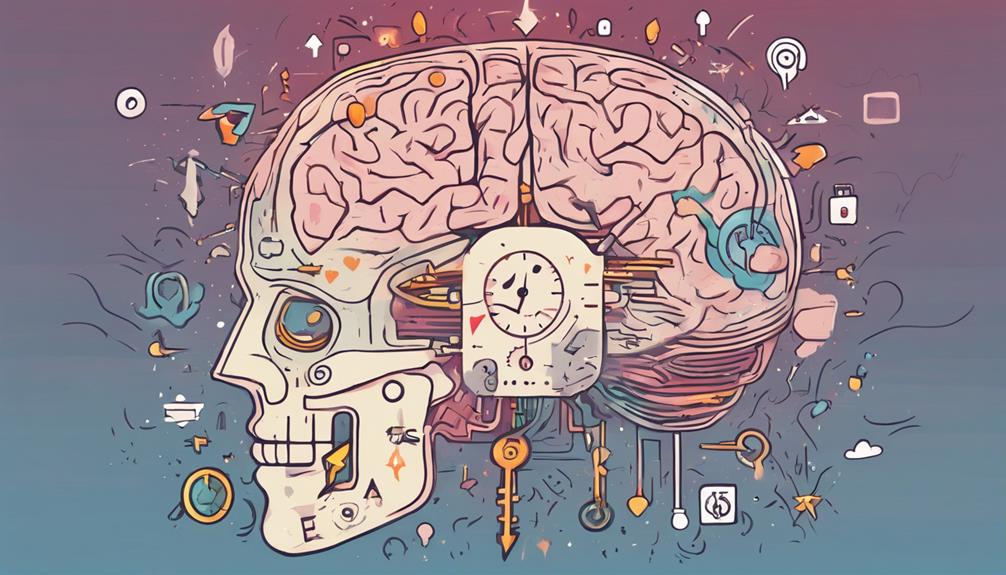Summary
Emotional triggers are intense feelings triggered by events, people or memories. Recognize them noticing your physical reactions, such as a fast-beating heart or sweaty palms, and sudden emotions such as anger or sadness. Common triggers include criticism or rejection. To handle them, try doing deep breaths To calm you down, grounding exercises focusing on your senses, positive self-talk to change thoughts, awareness to stay mindful, and the development of coping strategies. By learning to identify and manage your triggers, you can deal with them better. Want to learn practical steps to control your emotions? Go ahead, it's worth it.
Definition of Emotional Triggers
Emotional triggers are specific events, people, or memories that provoke an intense emotional response. Think of a time when someone made a hasty comment that left you hurt or angry for hours. This is an emotional trigger in action. It is like a button inside you that, when pressed, releases strong emotions such as sadness, anger or anxiety.
To better understand what emotional triggers are, imagine you are watching a movie. Suddenly, a scene reminds you of a painful past experience. This memory can cause a surge of emotions, even though you thought you were over it. Emotional triggers are deeply personal and can come from various sources, such as childhood experiences, significant life events, or even everyday interactions.
Consider how certain smells, songs or places can take you back to a specific moment in time. These are not random reactions; they are your brain's way of processing past experiences. Your body and mind are alerting you to unresolved feelings. By understanding what emotional triggers are, you are taking the first step in managing your emotional responses more effectively. It's about recognizing that these reactions are natural and can be addressed with the right tools.
Recognizing Your Triggers
Now that you understand what a emotional trigger, let's explore how to identify them in your daily life. Start by paying attention to your physical reactions. Do you feel your heart beating fast, your palms sweating, or a sudden headache when someone says or does something? These could be signs that you have been triggered.
Subsequently, monitor your emotions. If you suddenly feel angry, sad, or anxious for no clear reason, it is worth noting what just happened. Perhaps a comment from a colleague touched a sensitive chord, or a social media post made you feel uncomfortable. Keeping a journal can be a useful tool here. Write down what you felt and what happened immediately before that feeling. Over time, the following may emerge patterns.
Also, reflect on your thoughts. The negative internal dialogue or thoughts that go in a loop can signal a trigger. If you catch yourself thinking 'I'm not good enough' or 'Why does this always happen to me?' after specific events, those events could be your triggers.
Common Emotional Triggers

Certain situations, words or behaviors can instantly trigger strong emotional reactions in many people. These emotional triggers vary from person to person, but some are quite common. Recognizing them can help you better understand your responses.
- Criticism: No one likes to be criticized, but for some it can be particularly triggering. Whether it's a comment about your work or a remark about your appearance, criticism can make you feel attacked and defensive.
- Refusal: Feeling rejected, whether in a relationship, job application or social setting, can trigger intense emotions. It can make you feel unworthy or unloved, triggering feelings of sadness or anger.
- Unfair treatment: Experiencing or witnessing situations of injustice can be an important emotional trigger. If you feel that someone is treating you unfairly, it can lead to feelings of frustration, resentment, and helplessness.
Being aware of these common triggers helps you anticipate and manage your reactions. It is important to keep in mind that everyone has different sensitivities. By understanding what triggers you, you can begin to develop strategies to manage these emotions more effectively. In the next section, we will explore analyzing your trigger patterns to gain deeper perspectives.
Trigger pattern analysis
Understanding your emotional triggers Start by analyzing the patterns of your reactions. Pay attention to the moments when you feel Suddenly anger, sadness or anxiety. Notice what was happening right before you experienced that feeling. Was it something someone said? A specific place or situation? For example, if criticism from your boss often leaves you feeling discouraged, this is a clue.
Record these instances in a journal. Describe how you felt, what triggered the emotion, and any physical sensations you noticed, such as a fast-beating heart or sweaty palms. Over time, you will begin to see patterns. Maybe you realize that you feel anxious before important meetings or irritable after spending time on social media.
Next, look at the context surrounding your triggers. There are common themes? Perhaps certain people or environments constantly provoke strong reactions. By identifying these patterns, you can better understand what specifically triggers your emotional responses.
Reflect on how you usually react. Do you withdraw, react aggressively, or become overly self-critical? Recognizing these behaviors is essential. Once you identify patterns, you will be better able to understand and eventually manage your emotional triggers.
Strategies for Managing Triggers

To effectively manage your emotional triggers, start by practicing mindfulness techniques. Mindfulness helps you stay present and aware of your emotions without letting them control you. Here are three strategies to get you started:
- Deep Breath: When you feel triggered, take slow, deep breaths. This simple act can calm the mind and body, facilitating clear thinking. Try a pattern such as inhaling for four seconds, holding for four seconds and exhaling for four seconds.
- Rooting Exercises: Focus on your senses to bring you back to the present moment. Look around and identify five things you can see, four things you can touch, three things you can feel, two things you can smell and one thing you can taste. This helps take your mind off the trigger.
- Self-Positive Speech: Replace negative thoughts with positive affirmations. Say to yourself things like 'I am in control,' or 'This feeling will pass.' Positive self-talk can change your mindset and reduce the impact of triggers.
Frequently asked questions
How Do Emotional Triggers Affect Physical Health?
Emotional triggers can really affect your physical health. When you are stressed or anxious, your body releases stress hormones such as cortisol. This can lead to headaches, sleep problems and even high blood pressure. For example, if you get angry easily, you may notice that your heart speeds up and your muscles contract. Learn how to manage these triggers can help you feel better both mentally and physically.
Can Emotional Triggers Be Linked to Past Trauma?
Yes, the emotional triggers can be connected to the past trauma. When you experience something that reminds you of a past traumatic event, it can cause intense emotional reactions. For example, if you were in a car accident, driving could trigger anxiety. Recognizing these triggers is crucial. Once you know them, you can work on managing your reactions and healing from your past experiences. It's about understanding and taking control.
Are the Emotional Triggers the same for everyone?
No, the emotional triggers Are not the same for everyone. What triggers you may not bother someone else. For example, loud noises might remind you of a traumatic event, while others might simply find them annoying. Understand your unique triggers is essential. Think about what situations or words make you feel irritated or anxious. Once identified, you can start working on how to better manage your reactions.
How can you support a friend who faces emotional triggers?
To support a friend facing emotional sparks, be a good listener. Let him speak without interrupting or judging. Offer comfort with a hug or kind words. Encourage him to do deep breaths And to remain calm. If he needs space, give him space. You can also help him find professional support if needed. Your patience and understanding can make a big difference.
Can therapy help identify unknown emotional triggers?
Yes, therapy can definitely help you identify unknown emotional triggers. Psychotherapists are trained to guide you through your emotions and experiences, helping you uncover patterns you might not notice on your own. By talking about things and using different techniques, you will gain a clearer understanding of what triggers strong emotional reactions. It is like having a personal guide to help you navigate your emotional landscape.
